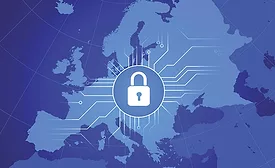Home » GDPR
Articles Tagged with ''GDPR''
The GDPR and Privacy: What Security Leaders Need to Know
If You Think the GDPR Doesn’t Affect You, Think Again
September 24, 2018
Sign-up to receive top management & result-driven techniques in the industry.
Join over 20,000+ industry leaders who receive our premium content.
SIGN UP TODAY!Copyright ©2026. All Rights Reserved BNP Media.
Design, CMS, Hosting & Web Development :: ePublishing









